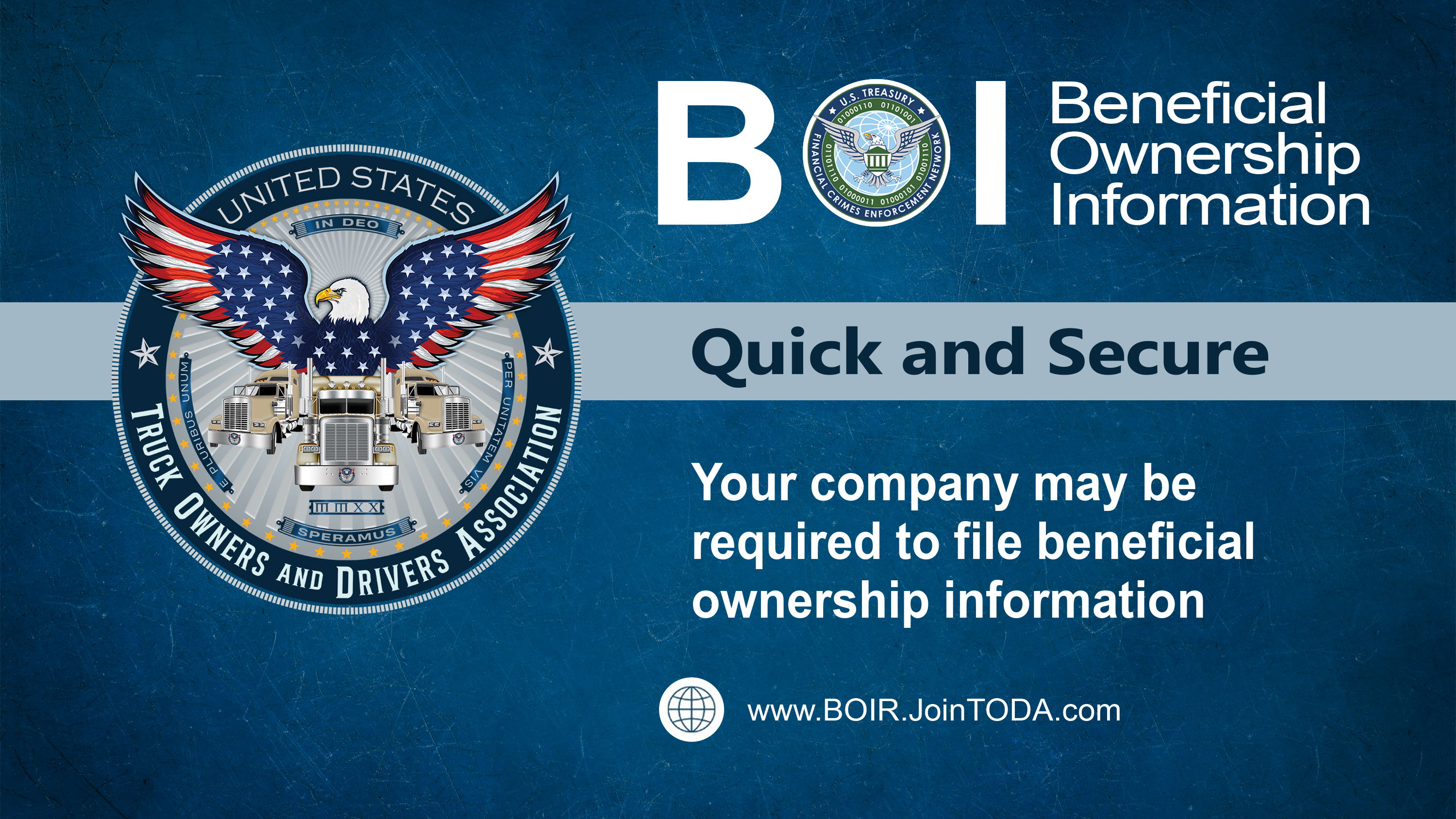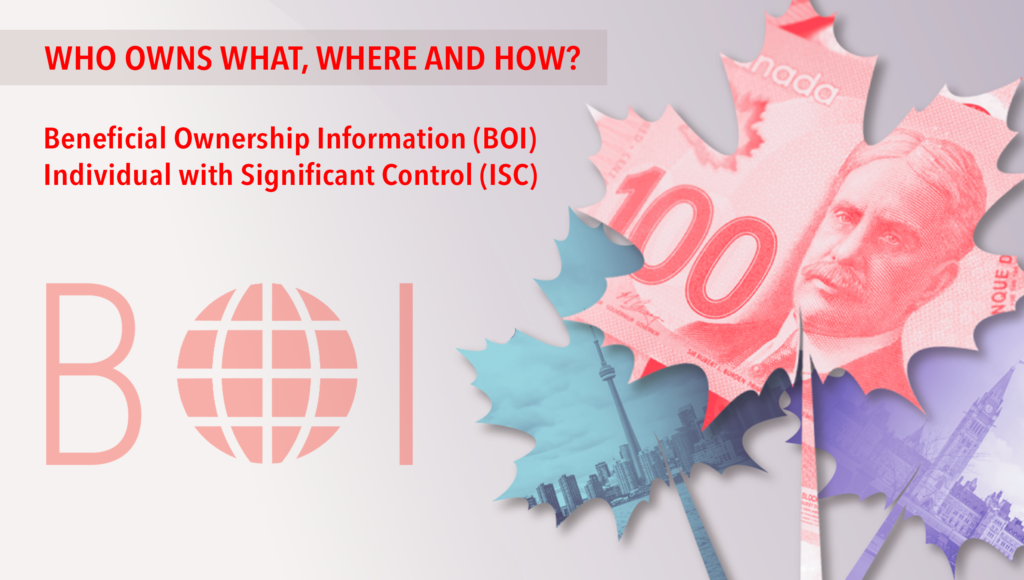Effective January 22, 2024, all federal corporations under the Canada Business Corporations Act (CBCA) must file information on individuals with significant control (ISC) with Corporations Canada. This initiative aims to enhance corporate transparency and combat financial crimes. Some ISC information will be publicly accessible.
What is an Individual with Significant Control (ISC)?
Under the Canada Business Corporations Act (CBCA), an Individual with Significant Control (ISC) is defined as a person who meets specific ownership or influence criteria over a corporation. These individuals must be identified and recorded to ensure corporate transparency. An ISC includes:
- An individual who is the registered or beneficial owner of, or has control or direction over, directly or indirectly, either:
- 25% or more of the outstanding voting shares of the corporation, or
- 25% or more of the corporation’s shares measured by fair market value.
- An individual who has direct or indirect influence that, if exercised, would result in control in fact over the corporation:
- An individual who is part of a joint ownership arrangement, meaning:
- They are one of two or more individuals who jointly own 25% or more of the outstanding voting shares, or
- They have an agreement to act jointly with others who collectively own 25% or more of the corporation’s shares by fair market value.
These regulations aim to prevent financial crimes, improve corporate accountability, and ensure proper disclosure of individuals who hold significant power over a business entity.
New Measures
In an effort to enhance corporate transparency and combat financial crimes such as money laundering and tax evasion, the Canadian government introduced Bill C-42, which amends the Canada Business Corporations Act (CBCA). Effective January 22, 2024, all federal corporations governed by the CBCA are required to file information regarding Individuals with Significant Control (ISCs) with Corporations Canada. This initiative builds upon the 2019 mandate that obligated non-publicly traded corporations to maintain internal ISC registries, which were not publicly accessible. The new amendments signify a pivotal shift towards greater openness in corporate ownership.
Publicly Accessible ISC Information: Information about the Individual with Significant Control to be filed that WILL BE made public
- Full Legal Name – The complete name of the ISC.
- Dates of Significant Control – The specific dates when the individual gained or relinquished significant control over the corporation.
- Nature of Control – A detailed description outlining how the ISC exercises significant influence or control over the corporation.
- Address – The residential address of the ISC will be made public only if an alternative address for service is not provided.
Confidential ISC Information: Information about the Individual with Significant Control to be filed that WILL NOT BE made public
- Date of Birth – The ISC’s birthdate will be collected but not disclosed publicly.
- Citizenship – Information regarding the countries where the ISC holds citizenship.
- Tax Residency – Details about the countries where the ISC is considered a tax resident.
These measures aim to align Canada with international standards on corporate transparency, providing law enforcement and regulatory bodies with essential information to deter and investigate illicit financial activities. Corporations are now responsible for not only maintaining accurate and up-to-date ISC records but also ensuring timely submission of this information to Corporations Canada. Non-compliance can result in significant penalties, including fines and potential dissolution of the corporation. It is imperative for corporations to review their governance structures and ensure adherence to these new reporting obligations to foster a more transparent business environment in Canada.
Filing Deadlines
Effective January 22, 2024, corporations governed by the Canada Business Corporations Act (CBCA) must file information on Individuals with Significant Control (ISCs) with Corporations Canada. This filing is required online through Corporations Canada’s website at specific intervals:
- Annually: Submit ISC information concurrently with the corporation’s annual return.
- Upon Incorporation: Provide ISC details during the incorporation process.
- Post-Amalgamation: File ISC information within 30 days following an amalgamation.
- After Continuance: Submit within 30 days of filing a continuance under the CBCA.
- Changes in ISC Register: Update and file any changes to the ISC register within 15 days of the change.
These measures aim to enhance corporate transparency and combat financial crimes. Non-compliance may result in penalties, including fines or dissolution of the corporation.
Penalties
Under the new regulations, Corporations Canada can dissolve a corporation that fails to file mandatory ISC information. It may also impose fines of up to $1,000,000 and enforce prison sentences of up to five years for violations. These stringent measures are part of broader efforts to improve financial oversight and ensure corporate integrity throughout Canada, holding businesses accountable for transparency and compliance in their reporting obligations.
Exemptions
Under the Canada Business Corporations Act (CBCA), Individuals with Significant Control (ISCs) can apply for an exemption from public disclosure if revealing their information poses a serious threat to personal safety. Other exemptions apply to ISCs declared incapable by a court or under provincial laws, or if confidentiality is mandated under specific legislation, such as the Conflict of Interest Act. Additionally, certain CBCA corporations are exempt from ISC filing requirements, including reporting issuers, their wholly owned subsidiaries, and public corporations listed on designated stock exchanges. These measures aim to balance transparency with individual privacy and safety concerns.
Next Steps
If you as an Individual with Significant Control (ISC) or if your corporation has any questions about the CBCA’s new requirements, please contact Truck Owners and Drivers Association of Canada to learn how we can help. Truck Owners and Drivers Association Global Network boasts a long history of advocacy and representing many successful corporations in Transportation, Logistics and Supply Chain sectors.


Note: This article is of a general nature only and is not exhaustive of all possible legal rights or remedies. In addition, laws may change over time and should not be interpreted only in the context of particular circumstances such that these materials are not intended to be relied upon or taken as legal advice or opinion. Readers should consult a legal professional for specific advice in any particular situation.



Individual with Significant Control